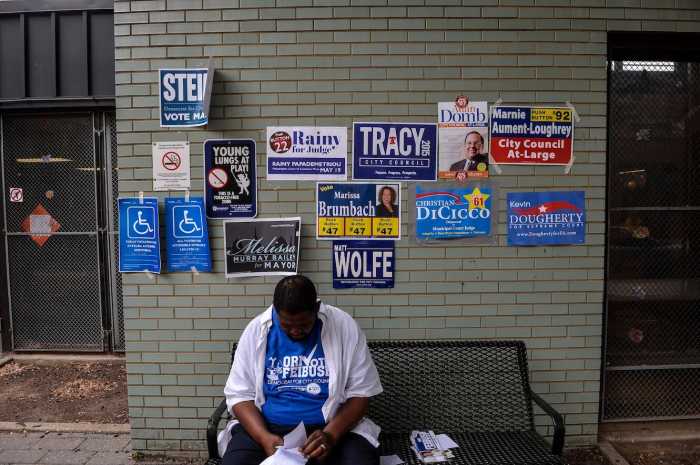If a player “reneges” in a game of spades, he breaks the rules by playing off suit when he should have followed suit. If he gets caught, he has to give up the books he’s already won.
Spades is a card game that’s serious business in the black community – the rules are followed religiously. I have seen families divided if a partner reneges. One who reneges is to be shamed, called to the floor and encouraged to improve his strategy. In Philadelphia politics, reneging is nothing new. And in the first 100 days of his tenure, Mayor Jim Kenney is definitely guilty of it.
After building a campaign on promises to improve the city’s race issues, he’s failed to do that much even in-house. His top appointees are mainly young white women; there isn’t the slightest suggestion of the diversity promise that helped get him elected. And while it’s admirable that he appointed Blanche Carney, the first female prison commissioner and a black woman, he replaced our black fire commissioner, Derrick Sawyer, for white Virginia transplant Adam Thiel. Such give-and-take would be less noticeable if he’d kept his word on the police department’s “stop-and-frisk” measures. During his campaign, Kenney promised to end the controversial practice — but once elected, he gave a more nuanced statement that was far less clear to the African-Americans and Latinos who voted for him. The American Civil Liberties Union of Pennsylvania has since criticized the police department for its inability to properly address the matter, and many are growing skeptical of the mayor’s ability to actually improve it. And an effort to fund universal pre-K by increasing soda taxes that would disproportionately affect working-class black families has raised the ire of unions and invited the criticism of policy wonks – according to BillyPenn.com, City Finance Director Rob Dubow said a “soda tax would hit poor neighborhoods the hardest, a point made earlier by experts, one of whom called the tax ‘regressive” and ‘imperfect.’” You can argue that many major institutions, such as the University of Pennsylvania, aren’t paying their fair share to the city. But nothing feels more unjust than overtaxing the poor to provide for all. Overall, these first 100 days have been a reneging of expectations and promises. Jim Kenney already had what it took to win over a vast majority of black voters to clinch the election. Now he is trying to play these same supporters with the same old guarantees and proposals so many have used before. This is what political reneging looks like. The only question now is, what’s the penalty? How will Philadelphians, especially those from marginalized communities, hold him accountable?
In spades, you have to surrender the books you’ve won. But in politics, only time will tell.
The Ernest Opinion: What did Jim Kenney renege on in his first 100 days?

Charles Mostoller































